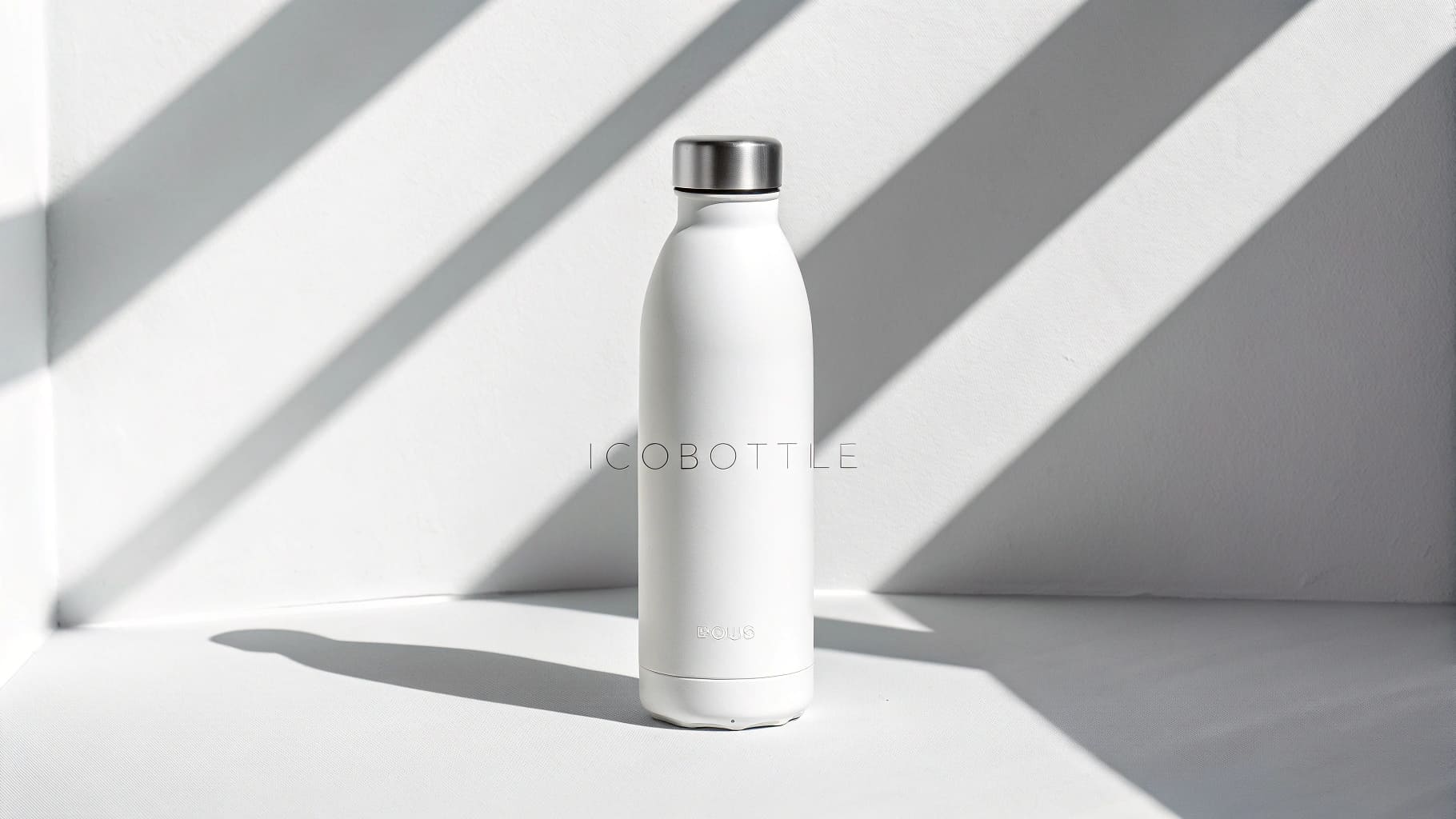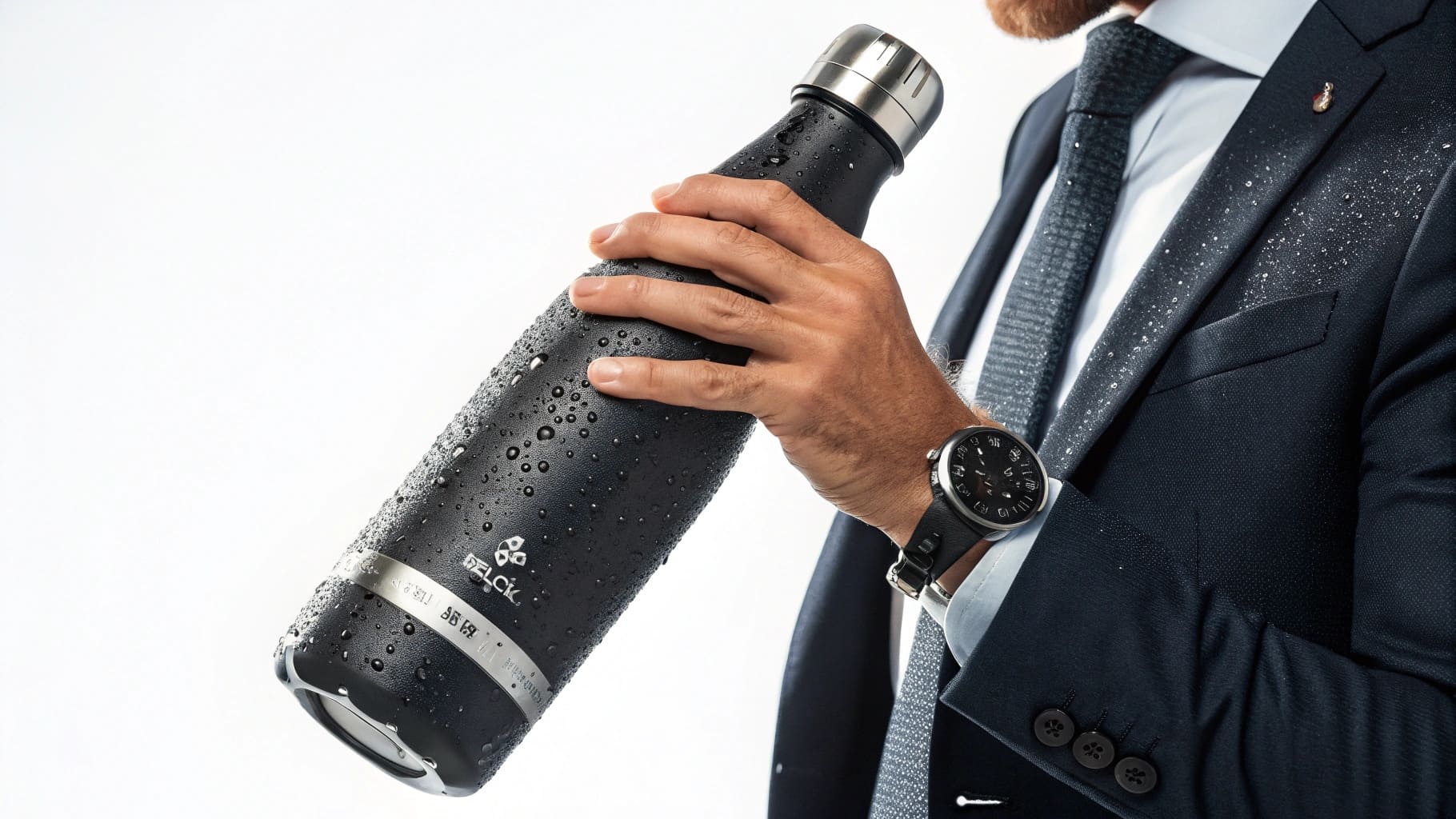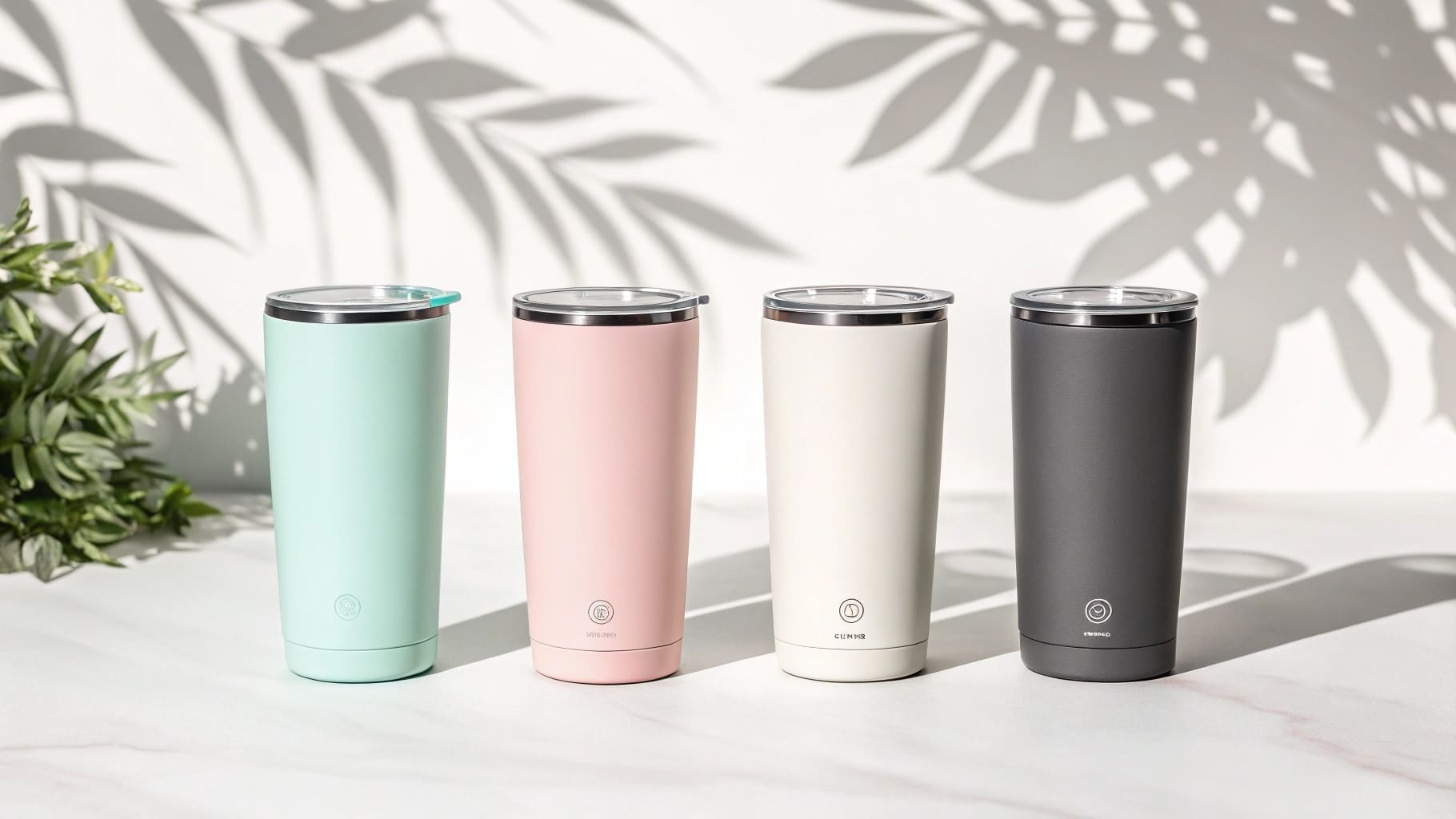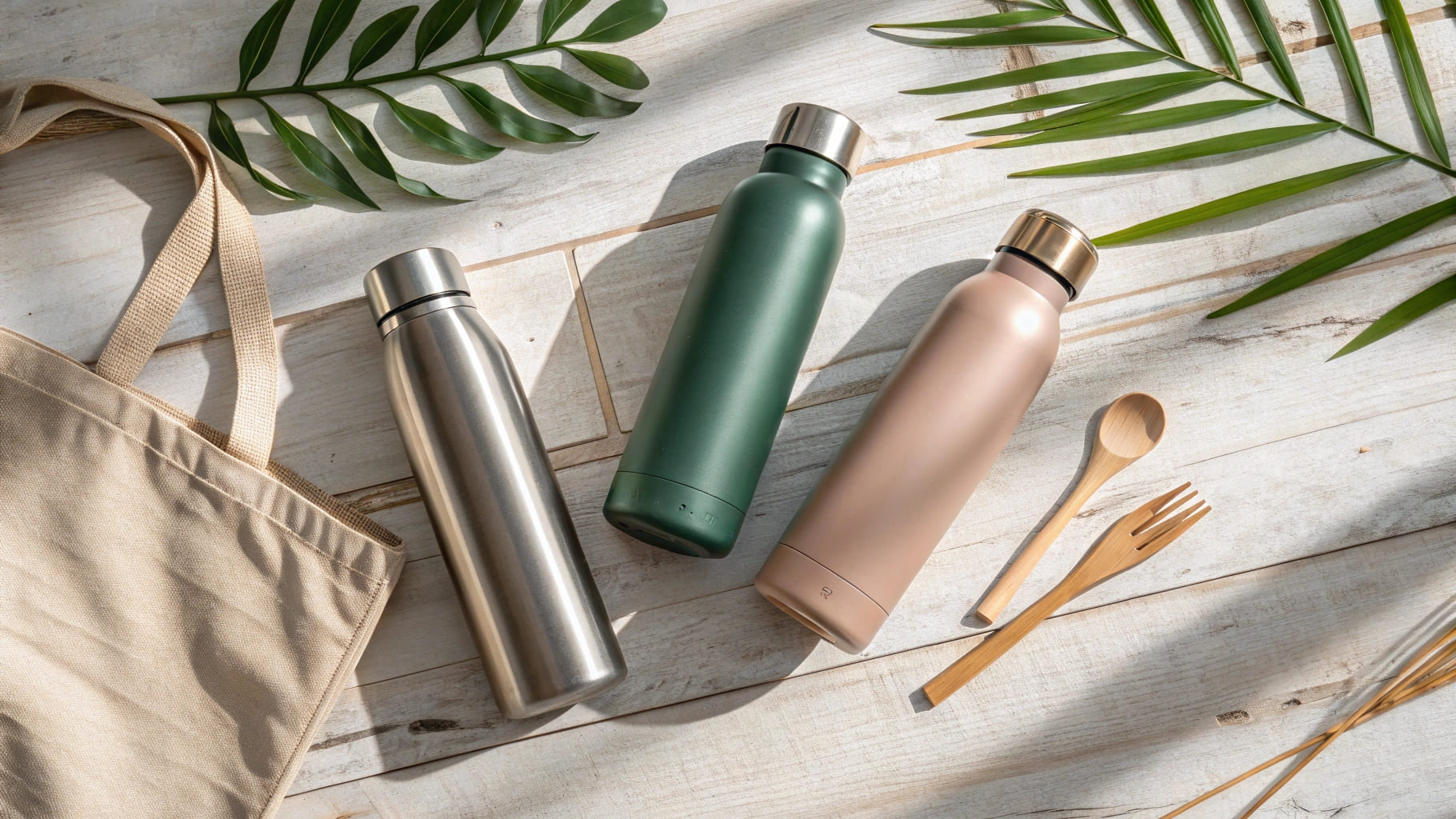Struggling to pick winning insulated bottles? Overwhelmed by trends and quality promises? This guide gives you key B2B insights for smart sourcing.
For B2B buyers like you, this guide breaks down how to assess market desires, material quality, innovative features, and supplier reliability. This helps you choose the best insulated bottles.

Choosing the right insulated water bottles for your business can feel like a big task. So many things matter. You have to think about materials. You also have to think about design trends. But I am here to help. We will look at common questions. We will see what they mean for a business buyer. This will help you make good choices.
Why is Nalgene often called the best water bottle?
Heard about Nalgene's top reputation? Wondering if its success offers lessons? Learn how their brand strength can guide your stainless steel bottle choices.
Nalgene's fame comes from its strong build and trusted material. For B2B, this means picking the right stainless steel, like 304 or 316. This choice affects quality and cost for your market.

Nalgene built its brand on toughness and a specific material, Tritan plastic. This teaches B2B buyers like us an important lesson. Your choice of material matters greatly for your brand image. When I started Icobottle, I knew focusing on top-quality stainless steel was crucial for the B2B market.
Stainless Steel: 304 vs. 316 for Your Bottles
For insulated bottles, stainless steel is the champion material. But you need to choose the right type.
- 304 Stainless Steel: This is the workhorse of the industry. It is food-safe and resists rust very well. It is also more affordable. Most high-quality insulated bottles, including many we produce at Icobottle, use 304 stainless steel.
- 316 Stainless Steel: This grade offers even better corrosion protection. It is especially good against salts and very acidic contents. However, it comes at a higher cost.
Here’s a quick guide to help you decide:
| Aspect | 304 Stainless Steel | 316 Stainless Steel | B2B Consideration for Your Business |
|---|---|---|---|
| Corrosion Resistance | Good | Excellent, especially against salts/chlorides | 316 is better for harsh environments or very acidic drinks. 304 is fine for most general uses. |
| Cost | More affordable | More expensive | Balance cost with the specific performance your end-users truly need. |
| Common Application | Food grade, widely used for most bottles | Marine applications, medical, some food uses | For general consumer drinkware, 304 offers the best value and performance. |
| Target Market Fit | General consumers, price-sensitive markets | Premium markets, specialized industrial uses | Consider if your customers will pay a premium for 316. |
When I discuss options with my clients, such as Mark Shenng from Canada, we carefully weigh these factors. Mark purchases stainless steel water bottles for rebranding. He needs top quality but also seeks competitive pricing. For his general retail market in Canada, 304 stainless steel usually provides the perfect balance. It ensures the bottles are high quality and durable, meeting his customers' expectations, without making the end product too expensive. Your material choice is a foundational step in building a trusted brand, much like Nalgene achieved with their specific focus.
Can you really put ice in an insulated water bottle to keep drinks cold?
Customers want drinks to stay cold for a long time. But does every insulated bottle on the market truly deliver on this promise? Let’s explore the technology that makes long-lasting coldness possible for the products you offer.
Yes, ice works wonderfully in well-made insulated bottles, keeping drinks cold for hours. For B2B buyers, the focus must be on superior double-wall vacuum insulation1. Using high-grade 304 stainless steel for both walls is key for consistent thermal performance your customers will expect.

The simple question about putting ice in a bottle actually points to a core product feature: its thermal performance. Your customers buy insulated bottles expecting their beverages to stay cold for many hours, or hot if they prefer. This is why the actual construction of the insulated bottle is so critically important. My years in this business at Icobottle have taught me that you can't cut corners here.
How Insulation Works and What B2B Buyers Must Check
The real magic behind an insulated bottle is its double-wall vacuum insulation.
- Double Walls: Quality bottles always have an inner wall and an outer wall. At Icobottle, we exclusively use food-grade 304 stainless steel for these. This material is robust, safe for all kinds of drinks, and does not impart any flavors.
- Vacuum Seal: The air in the space between these two walls is completely pumped out during manufacturing. This creates a vacuum. Heat struggles to travel through a vacuum, whether it's heat from outside trying to get in, or heat from the drink trying to get out. This is what keeps drinks at their desired temperature for extended periods.
For B2B buyers, this means you must ensure your chosen supplier has impeccable manufacturing processes.
- Consistent Quality in Sealing: The vacuum seal must be perfect on every single bottle. Even a tiny leak or imperfection will compromise the vacuum and ruin the insulation properties. This is a major quality control point for us.
- Verified Material Grade: Always confirm that 304 stainless steel2 (or 316, if specified for a particular need) is used for both inner and outer walls. This guarantees durability, safety, and performance.
I always tell my clients, including Mark who is very sensitive to quality, to ask detailed questions about quality inspection processes. We provide comprehensive reports and welcome third-party inspections, especially for large orders. Verifying certifications for materials and manufacturing standards is also a vital step. Be wary of suppliers who are hesitant to share this information; it can be a red flag, as certificate fraud does occasionally happen. A commitment to quality in these areas ensures the bottles perform as promised, leading to satisfied end-users and a strong reputation for your brand.
Why is a brand like Owala so popular with consumers now?
Noticing how some new bottle brands seem to gain quick fame and popularity? Are you wondering about their secret sauce for success in a crowded market? Discover how smart design and unique user-centric features can significantly boost your bottle sales.
Owala's current popularity largely stems from its user-focused designs, such as its innovative FreeSip® spout, and its strong aesthetic appeal. For B2B buyers, the takeaway is to seek bottles that offer distinctive features and align with modern styles to win over today's discerning consumers.

Brands like Owala clearly demonstrate that while thermal performance is a baseline expectation, it is often not the only thing that drives sales. Innovative design and a superior user experience are incredibly powerful differentiators. As a B2B buyer sourcing products for wholesale, you need to think deeply about what makes a bottle truly appealing and functional for the final customer. It's something I constantly evaluate when developing new products for Icobottle.
Key Takeaways from Popular Bottle Trends for B2B Sourcing
- Innovative and User-Centric Features: Owala gained significant attention for its FreeSip® spout, which allows users to either sip through a straw or swig from a wider opening. When sourcing, think about features that make the drinking experience easier, more convenient, or more enjoyable. This could include one-hand operation lids, designs that are very easy to clean thoroughly, integrated and durable carry loops, or non-slip bases.
- Aesthetic Appeal and Customization: Color palettes and surface finishes are hugely important. Owala, for example, offers a wide array of trendy and appealing color combinations. Consider these aspects:
- Color Trends: What colors are currently popular in fashion and design? Can you offer seasonal collections or limited-edition colors to create excitement?
- Finishes: Options like matte, glossy, durable powder-coating, or even unique textured finishes can make a standard bottle shape stand out.
- Branding and Customization: Offering excellent custom logo printing (like laser engraving or screen printing) and unique colorways for your B2B clients is essential. This allows them to build their own distinct brand identity. We at Icobottle specialize in providing top-quality customization.
For your business, sourcing bottles that incorporate these elements can make a substantial difference in market acceptance and sales velocity. When I talk to procurement officers from large companies or startup bosses like Mark, I often find they are actively looking for something "new," "different," or "smarter." This is what captures consumer interest and drives purchasing decisions.
| Trend Element | B2B Sourcing Focus | Example Application for Your Brand Offering |
|---|---|---|
| Unique Lids/Spouts | Prioritize functionality, true ease of use, leak-proof designs | Source or develop bottles with patented or innovative lid mechanisms that solve common user pain points. |
| Color & Finish | Offer variety, align with current trends, ensure durability | Provide a wide and appealing color palette with robust powder coating or other lasting finishes. |
| Ergonomics & Form | Ensure comfortable grip, practical size, fits cup holders | Select designs that are not just stylish but also highly practical for daily use and transport. |
| Sustainability Story | Explore recycled materials, eco-friendly packaging options | If possible, highlight if bottles use recycled stainless steel or components, or offer minimalist packaging. |
Successfully balancing proven quality, such as excellent insulation and durable materials, with these evolving consumer demands for style, innovative function, and personalization is key to capturing and growing market share. My Canadian client, Mark, always looks for these unique selling points. It helps him differentiate his offerings and command a premium for his rebranded bottles in his local market, even when sourcing from overseas suppliers like us in China.
Conclusion
Sourcing insulated bottles means balancing quality, trends, and your budget. This guide aimed to help you choose wisely for B2B success. Offer real value, and your customers will surely respond.

